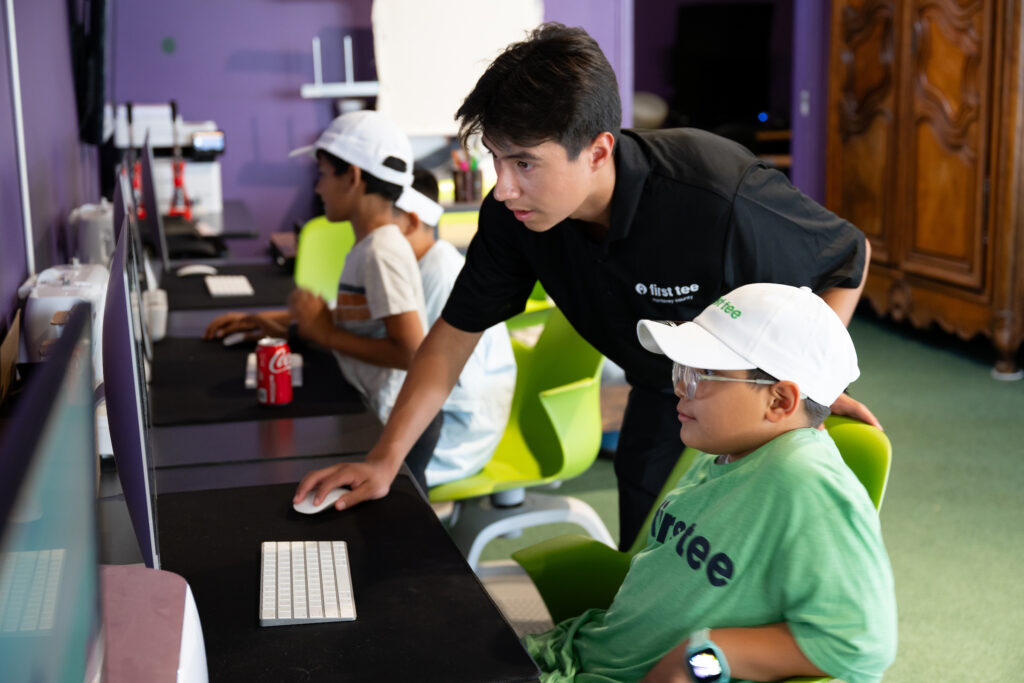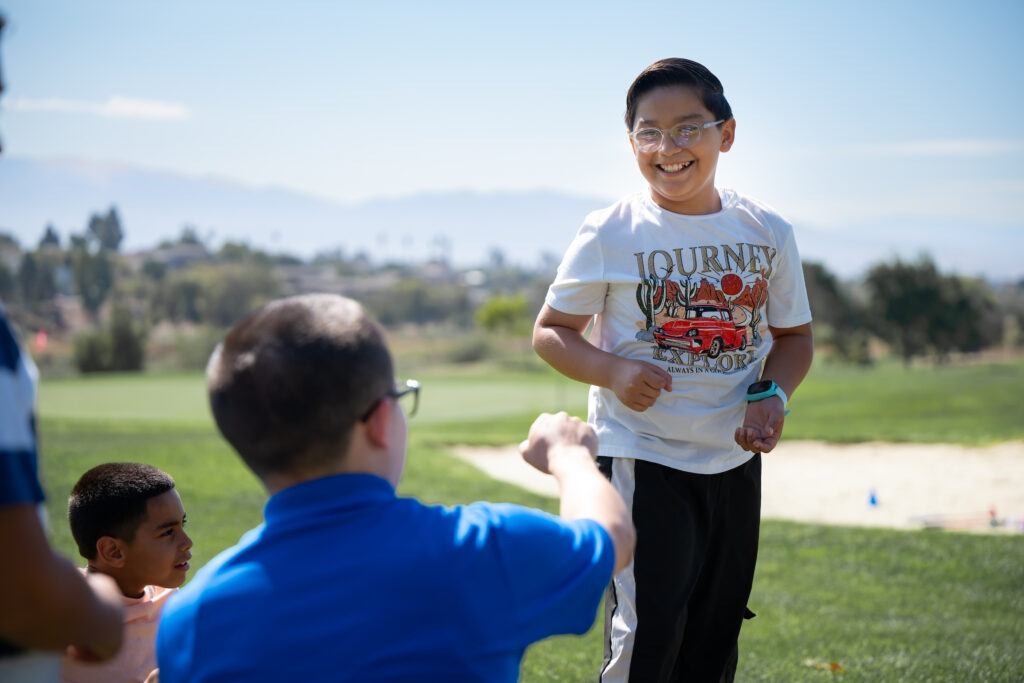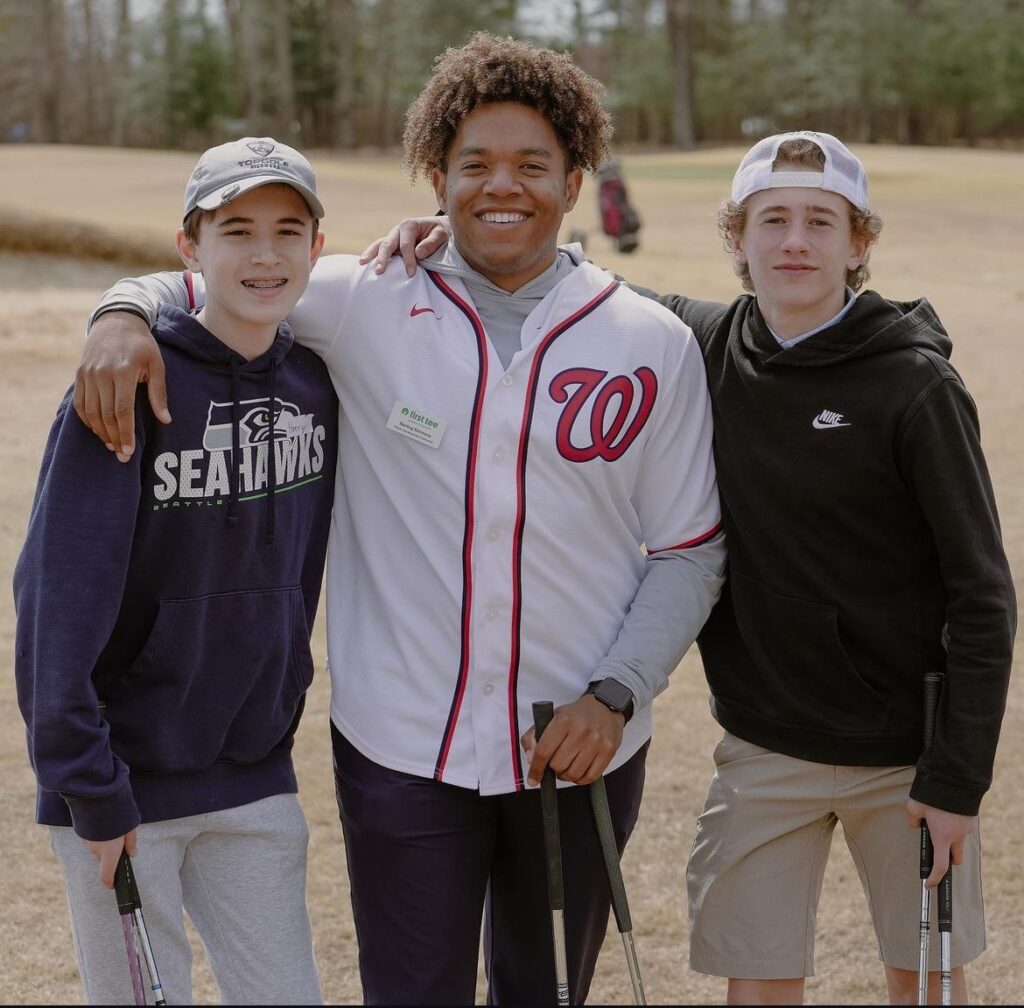One of the best things about playing golf is the chance to unplug – to step away from screens and into nature, where players can breathe in fresh air, socialize with peers and get some exercise. But as the sport’s popularity grows, many golf courses are operating at or near capacity. Add in factors like weather and transportation, and it becomes clear: green grass golf isn’t always within reach, especially for kids.
That’s why meeting kids on their turf – in schools, online, and at community centers – has long been central to First Tee’s approach. It inspired the launch of the First Tee School Program and more recently, the First Tee app. While we believe time spent outdoors is time well spent, we also recognize that kids today need to build strong technology skills and learn how to navigate the digital world safely and responsibly.
First Tee leaders Ben Jarvis, vice president of strategy and business enablement, and Ryan Graff, vice president of programs, regularly discuss both the opportunities and the challenges technology presents for young people, and for the adults supporting them.

What parents should know about kids and apps
“When evaluating apps for your child, start with privacy and data protection,” Ben said. Look for apps with clear, transparent policies that limit data collection. All of this information is available in the app store.
To see if an app is age appropriate, Ben recommends reading reviews from trusted sources like Common Sense Media and checking whether it offers parental control options – many kids’ apps do. Parents can also research app developers to see if they have a strong track record and good reputation.
Furthermore, there’s the matter of in-app purchase: “Check whether the app includes premium features that might lead to unexpected charges,” Ben said.
Ultimately, determine whether new apps fit into your family’s screen time philosophy. “Consider whether an app educates, inspires creativity, meaningful connection or develops skills rather than just capturing time and attention,” he said. “The First Tee app, for example, reinforces life skills and golf concepts through interactive activities.”
Building digital skills – and character
Technology skills are nonnegotiable, and today’s kids need more than just familiarity with devices. “Digital literacy is the ability to find, evaluate and analyze digital information critically, distinguishing between credible sources and misinformation,” Ben said.
Exposing kids to technology in a healthy way can help ensure they understand how to protect personal information and navigate digital spaces safely.
Equally important is helping kids develop healthy relationships with tech. “Families are searching for how to find a balance when it comes to technology,” Ryan said. “First Tee is impactful because it’s more than golf. Kids and teens learn valuable life skills to navigate the course but also other contexts such as school and extracurricular activities. We explore the values that are inherent to the sport, like honesty, good judgment and overcoming challenges – all of which are important in life and online.”
In addition, First Tee provides opportunities to help kids build social skills with coaches and their peers within class, so attending First Tee classes can be a support in developing this balance.
In a world filled with technology, there are lots of lessons we can learn from golf:
- Focus and presence: Golf provides a space with fewer external distractions and the opportunity to focus and be present with the golf shot before you – a rarity in a world full of notifications.
- Patience and delayed gratification: In an age of instant rewards, golf teaches that improvement comes through consistent effort over time.
- Good judgment: Golf’s emphasis on integrity – calling penalties on oneself, playing by the rules – builds the ethical foundation that guides responsible technology use.
- Face-to-face social skills: The in-person connections formed during golf provide interpersonal experiences that screens can’t replicate, building social confidence.
- Emotional regulation: Managing frustration after a bad shot by learning the 4Rs (Relax, Replay, Ready Redo) builds emotional resilience that helps children navigate online challenges.
- Strategic thinking: Golf can help build creative problem-solving abilities, like STAR (Stop, Think, Anticipate and Respond) that transfer to technological contexts.
- Physical activity and nature connection: The experience of being outdoors and moving provides essential balance to screen time, contributing to physical and mental health.

According to data from First Tee and The Harris Poll, 85% of parents believe character is a “lost value” in society, and 93% agree that kids can learn life skills through sports. “Our coaches are trained not just in golf, but in youth development,” Ryan said. “That’s what makes the experience so impactful.”
At First Tee, technology isn’t a replacement for these experiences; it’s an enhancement. As Ben puts it, “We’re preparing kids for a world full of digital tools. But more importantly, we’re helping them develop the character and confidence to use those tools with awareness, purpose and integrity.”
Find a First Tee Chapter near you.

